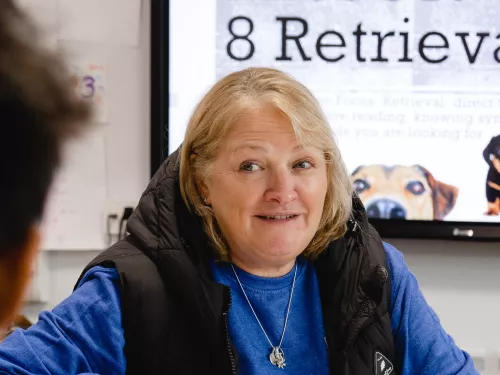
Tutoring in Oldham
Farhan's role as a tutor in Oldham helped him give back to the community

Interested in what tutoring looks like in a school or college, and the difference it can make to young people? These case studies showcase tutors' experiences of working with us.
Tutor Survey, 2024
Tutor Survey, 2024
Tutor Survey, 2024

Farhan's role as a tutor in Oldham helped him give back to the community

Learn how being a Tutor Trust tutor helped Ada to learn on the job and develop her professional skills while studying at The University of Leeds

Faisal Fazal never imagined he would one day realise his childhood dream of inspiring others in Maths

Shamaila talks to Tutor Trust about the joy of tutoring and how it prompted her decision to become a teacher

Having grown up and attended school in Bradford, Zubhiya Yunis was keen to give something back to young people growing up in the communities she knew well

Hear from George, one of our Merseyside tutors, who tells us about how tutoring as a first-year University of Liverpool student enriched his experience

Eleanor's role as a tutor cemented her decision to become a teacher after graduation

After one fulfilling career working with medical professionals, Carole is relishing her time supporting young people in the classroom.
